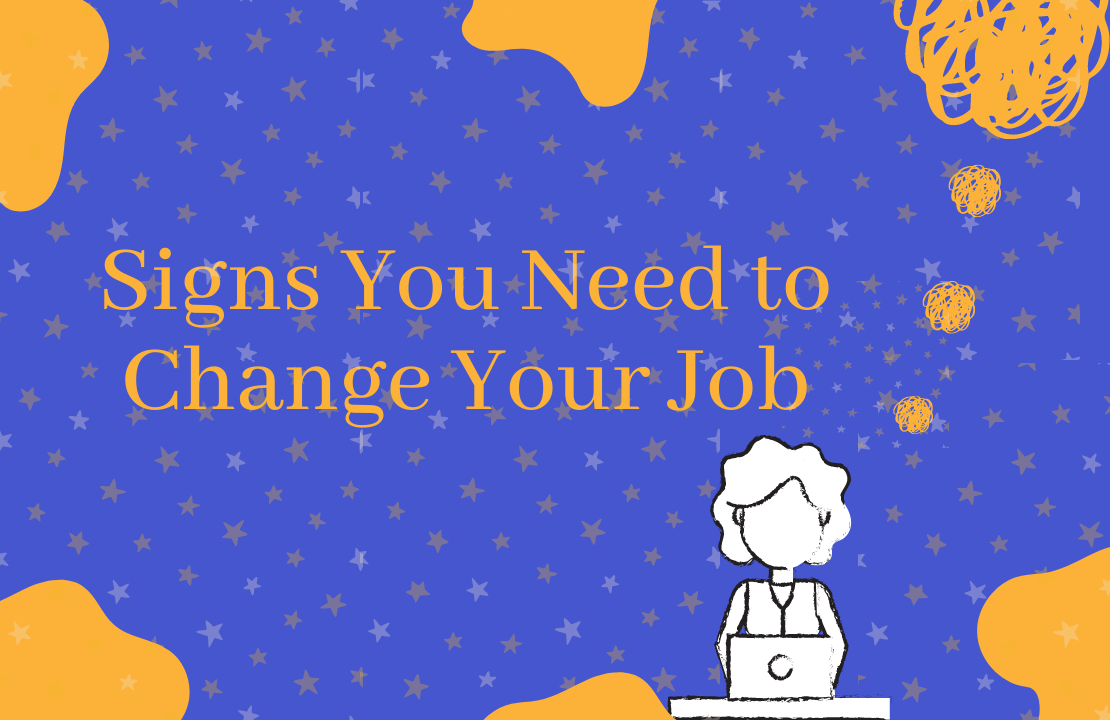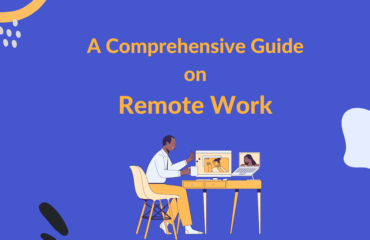Table of Contents
According to the Office for National Statistics, an average of 9% of people changed jobs per year between 2000 and 2018. Some common reasons for changing jobs are lack of development opportunities, poor management, and unsatisfactory rewards. Changing careers is a tough decision but what’s even more difficult is staying in a job that does not bring you satisfaction and mental peace. In this article, we will discuss a few signs that will help you decide if you are truly satisfied with your job or subconsciously rooting for a career change.
1. You feel invisible at work
According to Maslow’s hierarchy of needs, the need to be accepted, recognized, and appreciated forms a crucial part of an employee’s life. Your need to feel appreciated at work is natural. Working with an employer that doesn’t value you is tough. It not only affects your work and productivity but also hampers your mental health. If you think you are not cherished at work, it may be time for you to move on to a new job. Some signs to look out for are:
- You do not get credit for your achievements
- You get interrupted in meetings
- You haven’t been promoted
- You do not get proper feedback
- You feel isolated at work
2. You are under-paid
Money is an effective and simple motivator. While there is no doubt that the work you do and the tasks you perform are crucial for your satisfaction, money still has a huge role to play. Seeking financial stability is not wrong, and as an adult who has bills to pay, it is a must.
At times, employees are not aware of the industry standards and agree to get paid less, which affects them in the long run. If you believe you are not being paid what you deserve for your job role, we suggest looking for a role that gives you job satisfaction and pays you well, too. If you are someone who doesn’t know if they are being paid the ‘right’ amount, we recommend checking the following resources:
3. Your work environment is toxic
A toxic environment is much more than just bad bosses. Working in a toxic environment can lead to poor mental and physical health, affecting your performance and productivity. It may result in you developing a general dislike or even hatred for your surroundings.
A toxic environment is the one with:
- No proper communication between the employees and management
- High levels of gossip and politics
- Demotivated employees with no effort from the employer
- No boundaries between work and personal life
- Everyone’s angry, frustrated, impatient, or lethargic
Such work conditions can take a toll on you and may even start affecting your relationships with your friends and family. If your work culture reflects any of these actions, it is time to take a step back and think if you really want to continue working in a surrounding like this. You deserve to work in an environment where you are welcomed and celebrated.
4. Your mental health is affected at work
Are you always tired or worried because of your job? Do you unwillingly snap at people and avoid company? Are you constantly stressed about work and your professional life? If your answer to even one of the statements above was yes, chances are that your work is affecting your mental health.
While jobs and professional experiences are important, they are just a part of your life. Your mental health is more crucial and should be prioritized in any situation. Being depressed and feeling anxious are signs of poor mental health. If you feel you are experiencing any of these, we would strongly recommend seeking professional help and leaving behind the environment that is causing this.
5. You have limited growth opportunities
If you are in a job that does not allow you to grow personally and professionally, it most definitely is time for you to move on to a new, challenging opportunity. Development through your job ensures your skills and knowledge are relevant and up-to-date. It helps you embrace more challenges and take higher positions of responsibility. It also provides you with the capability to train, develop, and mentor fellow employees.
6. You are uncomfortable with people around you
As a professional, you spend a large chunk of your life in your office. This means spending a lot of time with your colleagues and coworkers. Unfortunately, not all members of such social groups are what we expect them to be. While some can be supportive and caring, some others could be negative and toxic. Social groups with a negative environment have been found to impact your happiness adversely. Thus, if the people around you do not support you and have constantly been impacting you emotionally, it makes sense to leave such a culture and start afresh.
7. You want to try a different career path
Many professionals in their late 30s or early 40s, or later are reluctant to make a career change. Career changes come with uncertainty and require a lot of effort and time from your end. Thus, even when many professionals want to try a new career, they choose to stay where they are. Well, if you are someone who wants to change career but is unsure, we would recommend thinking about it more thoroughly and seeking professional help to take a structured approach. You thinking about it is a sign and you shouldn’t ignore it!
Job search is a tough process and stepping out of your comfort zone to move to a new job is even more challenging. However, ignoring signs that eventually start affecting your health, work, and relationships is unhealthy. As career strategists, we would like to reassure you that a job search may be a strenuous process, but in the end, it is worth it. Using the right resources while strategizing your job search process can help you land your dream job.










